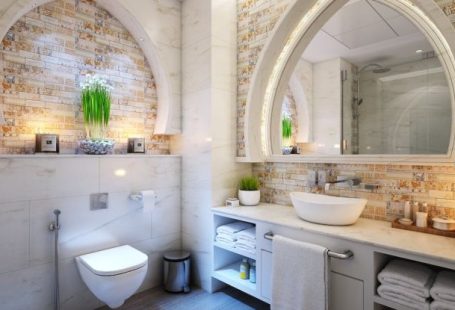In today’s fast-paced world, where clutter seems to be a constant presence in our lives, the idea of decluttering has gained significant attention. But is there more to decluttering than just a clean and organized space? Can the act of decluttering actually have a positive impact on your overall wellbeing? Let’s delve into the potential benefits that decluttering can bring to your mental and physical health.
The Relationship Between Clutter and Stress
It’s no secret that living in a cluttered environment can contribute to feelings of stress and overwhelm. The visual chaos created by clutter can be a constant source of distraction and can make it difficult to focus on tasks at hand. Clutter can also lead to feelings of guilt or shame, as the mess around us may remind us of unfinished tasks or neglected responsibilities.
Research has shown that the presence of clutter in our living spaces can elevate levels of the stress hormone cortisol. Chronically elevated cortisol levels have been linked to a myriad of health issues, including anxiety, depression, and even cardiovascular problems. By decluttering our surroundings, we can potentially reduce the stressors in our environment and create a calmer, more peaceful space to inhabit.
Enhanced Mental Clarity and Focus
Have you ever noticed how much easier it is to concentrate and think clearly in a clean and organized environment? Decluttering can help to clear not only our physical space but also our mental space. When we remove the excess distractions and visual noise that clutter creates, we allow our minds to function more efficiently.
A cluttered space can overwhelm our senses and make it challenging to prioritize tasks or make decisions. By simplifying our surroundings through decluttering, we can create a more conducive environment for productivity and mental clarity. With a clearer mind, we may find it easier to set goals, stay organized, and maintain a sense of focus throughout our daily activities.
Promoting Emotional Wellbeing
Our living spaces are a reflection of our inner state, and clutter can often be a manifestation of unresolved emotional issues or internal chaos. By decluttering our physical surroundings, we can also address and release emotional baggage that may be weighing us down.
The process of decluttering can be cathartic and empowering, allowing us to let go of possessions that no longer serve us or hold negative associations. Creating a clean and organized space can promote a sense of peace and harmony within ourselves, leading to improved emotional wellbeing.
Improved Sleep Quality
The environment in which we sleep plays a significant role in the quality of our rest. A cluttered bedroom filled with distractions can interfere with our ability to relax and unwind, making it difficult to achieve restful sleep. By decluttering our sleeping space and creating a serene atmosphere, we can promote better sleep hygiene and enhance the quality of our rest.
A clutter-free bedroom can signal to our brains that it’s time to unwind and prepare for sleep. Removing visual clutter and creating a tranquil environment can help reduce mental stimulation and promote a sense of calm that is conducive to a good night’s sleep.
Reaping the Benefits of Decluttering
Decluttering is more than just tidying up; it’s a powerful tool for improving your overall wellbeing. By creating a clean and organized space, you can reduce stress, enhance mental clarity, promote emotional wellbeing, and improve your sleep quality. Take the time to declutter your surroundings and experience the transformative impact it can have on your life. Embrace the process of decluttering as a way to nurture not only your physical space but also your mental and emotional health.





